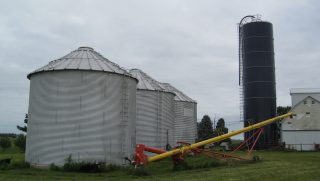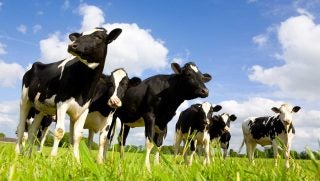The U.S. Department of Agriculture released a statement that, by the end of 2023, the agency plans to distribute reparations to borrowers who were unfairly assessed or turned away from the USDA’s farm lending program because of their identity and/or orientation.
Many of these discriminated borrowers and their families are people of underserved communities and had the practices weaponized against them by the USDA while it failed to properly support their operations. In an effort to mend the broken bridge of trust between the USDA and underserved communities in agriculture, the agency has made it a goal to financially support communities whose businesses and livelihoods have suffered as a result of unjust policies and practices.
The funds are allocated through the Inflation Reduction Act of 2022, which is intended to funnel $2.2 billion to settle the grievances of borrowers who were inequitably treated by the farm lending program.
Borrowers must provide proof of discrimination through a 40-page application detailing taxpayer information, two forms of identity, borrower and co-borrower personal information, percentage entity when discrimination occurred, detailed information about their property during the time of discrimination, and detailed information of their discrimination experience as it relates to their identity.
Once the application is assessed and processed, a previously discriminated borrower can receive up to $500,000 through the allocated funds detailed in the Inflation Reduction Act.
“These funds are yet another stepping stone in the long march towards justice and an inclusive, equitable USDA,” said Agriculture Secretary Tom Vilsack, continuing on to elaborate on the goals of the USDA and the agency’s financial assistance program’s path toward building back trust with the people the department services.

However, Black farmers across the nation argue in a class action lawsuit against the USDA that they are owed much more than what the USDA has allocated through the Inflation Reduction Act. They also claim that the excessively long, confusing, and repetitive questions on the application are another barrier toward justice.
Ironically, they’re calling it yet another form of discrimination.
Additionally, the application can be written to inform the USDA of another family member from years to decades prior who have also faced discrimination by the loan program. However, Black farmers argue that this constitutes even more discrimination.
Black farmers have filed their third lawsuit against the USDA, this time to strike down the 40-page application.
“It does not take 40 pages to pay a person who you acknowledge and admit that you’ve discriminated against,” said Thomas Burell, President of the Black Farmers and Agriculturalists Association. Discriminated farmers “lost land. They lost opportunities. Their work has been in vain. They should be compensated.”
Due to the lawsuit being put into place, the USDA has extended the application due date to January 13, 2024.

“The extension will also ensure everyone has adequate time to apply, including producers whose harvest season falls during the original application period,” the USDA said in a news release.
The USDA Discrimination Financial Assistance Program team has developed a nationwide outreach campaign, opened 30 local offices across 26 states, and have held well over 600 virtual and in-person events across the country. The USDA has seen itself doing as much as it can to help the process remain accessible for all farmers applying for the program.
“USDA knows it must earn the trust of the farmers, ranchers and forest landowners who are eligible for this program. That makes transparency in the administration of the Discrimination Financial Assistance Program crucial,” Vilsack said.
A court hearing took place as recently as October 18, and a judge will ultimately assess whether the 40-page document is discriminatory. As court hearings occur, the number of Black farmers attending the hearings and joining the class action lawsuit increase.
“I am here because my ancestors were farmers,” said Bettie Brown, a descendant of Black farmers who has joined in the frustration of those taking on the USDA. “I saw the hard time they had and the disappointment they had during that time when they were trying to obtain funds to make their life better, and it was denied to them.”
All the farmers suing want one thing in the form of monetary value: justice. Reparations monetarily that make a promise to the discriminated that there will never be a practice or policy put together to cause suffering again. And if there is, there is a promise of consequence as a result of discriminatory practices.
The funds are allotted, but are they equitably being distributed? Are there ways to consolidate the questions? Provide longer access to the application? Maybe even a permanent access longer than a few months, but indefinitely for all matters of discrimination that may arise? One allotment of money doesn’t permanently erase a rooted, systemic issue such as discrimination. It takes years to eradicate, and as long as it exists we must continue to develop programs and provide monetary assistance that will grow us all in agriculture closer to trust.
Yes, Secretary Vilsak. This is a stepping stone. Let’s keep listening so we can continue building the path toward equity in the agricultural industry.
Bre Holbert is a past National FFA President and studied agriculture science and education at California State-Chico. “Two ears to listen is better than one mouth to speak. Two ears allow us to affirm more people, rather than letting our mouth loose to damage people’s story by speaking on behalf of others.”




